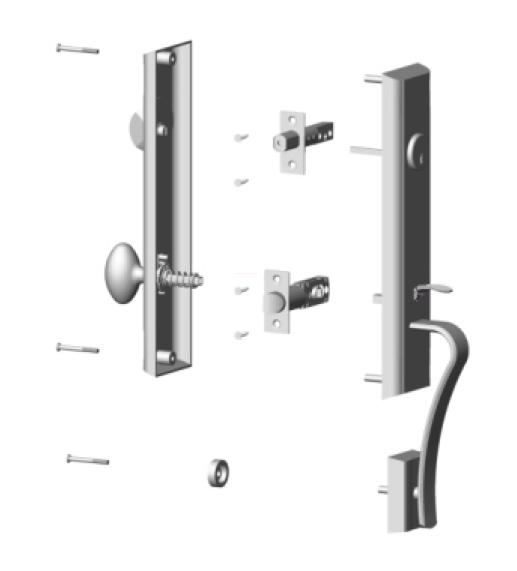Your security gate is only as strong as the lock you use – Your steel gate lock is only as good as the gate you build.
Installing Electric Locks? Safe?
Power Supply
Check that you have the correctly specified power supply connected.
Check that you have enough power going all the way to the lock – correct voltage must be 12v AC to lock itself
Less than 12V and the lock might not always release correctly (unless the door lock has a function for reduced power supply)
More than 12V and the coil can heat up and burn out
Make sure Amperage is sufficient to avoid power drops (1.5 amp or 3 amp for long cables)
ALWAYS USE A VOLTAGE METER!
Wiring

Ensure that you use the correct thickness of cable
Use minimum of 1 mm2 (square) diameter flex up to 30m cable length
Use minimum 1.5 mm2 flex above 30m
Make sure that all wires are tucked away and not exposed or accessible
Exposed wires pose a security risk
Mind the Gap
Ensure that you have the recommended gap between the frame and the lock body so that the lock will load and set correctly
If the gap between the frame and the lock body is too narrow the latch can get stuck
If the gap between the frame and the lock body is too wide the latch won’t latch and set properly
Optimum gap for most electric locks is 3 – 4 mm
Optimum gap for Aluminium doors – 2mm
Optimum gap for Rim Electric locks can go up to 4.5mm
Installation
Make sure that the Cylinder Barrel is facing the right way up (with the CISA logo facing to the top)
If you are installing a Rim Electric Lock and the cylinder barrel sticks out it needs to be protected with a CISA weld-on protective box, otherwise it can become a security risk
If you are installing a Euro-Profile cylinder in a Mortise Electric Lock then you need to use a protective rose or Escutcheon
On Mortised Electric Locks make sure that you protect the coil of the locks as much as possible from weather – seal the tops of the gate tubing and make sure the top of the lock-style is sealed, otherwise rainwater will seep in and can damage the coil.
Maintenance
Ensure periodic maintenance and lubrication
USE WD40
Spray on Latch & Load pin, Dead Bolt and Cylinder (but avoid contact with the coil)
DO NOT spray onto the Coil (avoid the coil completely)
DO NOT use a Silicon based spray. This can cause more harm than good.
10 tips to making your security gate as safe as possible:
Ensure that all welding is thoroughly done by an experienced welder.
Ensure that your gate Frame is securely attached to the structure
Always ensure that you correctly specify your lock, and choose the strength of the lock according to your security requirement
Ensure that all surface mounted locks are concealed from the outside and that you use a protective 3mm steel plate if the gate is not solid to make sure there is no access to the locks.
Ensure that there are no gaps between the gate and the frame that will allow access to the lock from the outside with crowbars or similar levers. Instead, use of a 3mm Steel Overlap to cover any gaps.
Ensure that the Fixing Plate of the main door lock is welded to the gate securely
Ensure that the Strike Box of the lock is be welded securely
Ensure that the gate not corroded or sagging, and that the gate hinges are strong
Make sure that there are no cables or electrical wiring exposed and make use of a Cable Guard between the gate and frame

